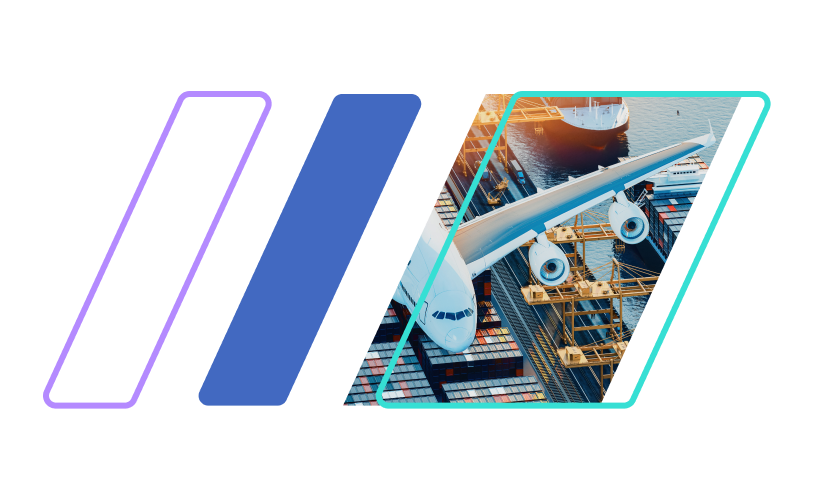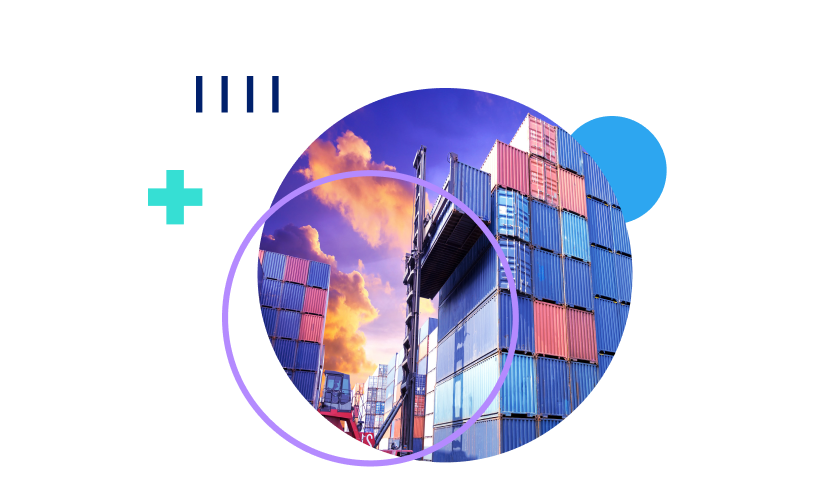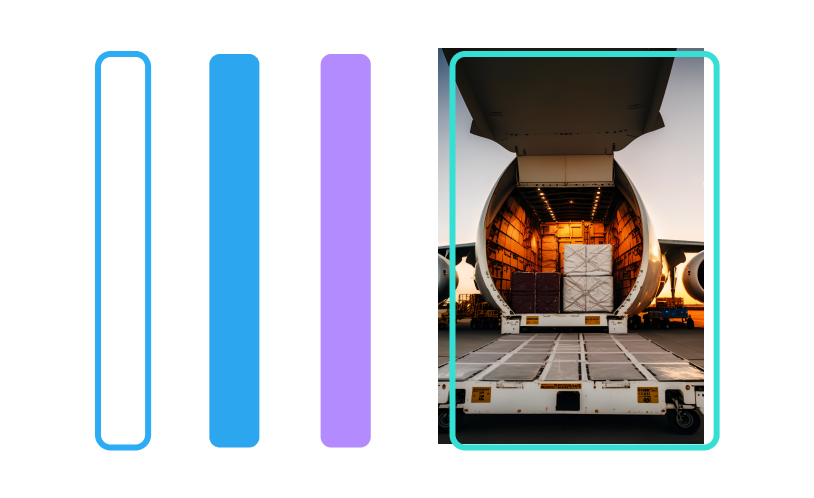In freight forwarding, time is money – and nothing eats away at both quite like repetitive data entry and disconnected systems. That’s why Crane Worldwide Logistics is transforming their freight forwarding operations by leveraging WebCargo’s end-to-end EDI booking integration with their existing E2open TMS. This integration allows Crane to tap into WebCargo’s powerful rate management, quoting, eBooking, and market intelligence capabilities directly from the comforts of the existing TMS. By eliminating the need for manual processes or external tools, Crane Worldwide can boast of a streamlined setup that means faster workflows, sharper efficiency, while delivering enhanced carrier and customer service – all from a single, familiar platform.
The Power of Integration: “Seamless, Instant, and No More Guessing”
WebCargo’s integration with e2open has been a game-changer for operational efficiency.
“The value, without a doubt, is how much quicker it is to process these shipments,”
shared Megan Kelley, VP of Enterprise Applications at Crane Worldwide Logistics.
For freight forwarders like Crane Worldwide, time spent manually re-entering data or verifying bookings isn’t just inefficient; it’s a real cost. In fact, on average, forwarders wait 91 hours for spot quote requests, with research showing that some 43% of a sales exec’s time is spent on pricing and RFPs. So naturally, even a few minutes shaved off each booking can translate into thousands of dollars saved over the course of a year.
That’s why Crane Worldwide is redefining how they handle shipments, through WebCargo’s end-to-end EDI booking integration with E2open’s TMS. Here’s how it works: once a quote is secured, every detail – from charge codes to carrier preferences and even special instructions – flows automatically into the E2open TMS. No more re-entering data or ‘chasing down the sales team’ for missing details.
“There’s no emailing back and forth between the inside sales team and the operations team. It automatically comes into the system, operations review it, accept it, and then books the freight…all those upstream details are already in the system.”
Kelley explains. It’s seamless, it’s fast, and it’s a major milestone in eliminating busywork.
Integration That Delivers More Than Cargo
This integration eliminates a major pain point for Crane Worldwide, which previously struggled with siloed systems. In a world where miscommunications can delay shipments, cause pricing errors, and lead to lost customers, seamless integration isn’t just a luxury, it’s a necessity.
And the payoff doesn’t stop at operational efficiency. When it’s this easy to access accurate, up-to-date information, Crane Worldwide’s team can focus on higher-value tasks: the human side of their business – building stronger relationships with clients, exploring new routing options, and ensuring top-tier customer service. Kelley remarks,
“Instead of worrying about what didn’t make it into the system, our team can spend time on what matters – getting shipments out the door faster and with fewer headaches.
The more we can provide value-added things for what our clients are doing… it helps them connect their supply chain better when they have a partner in us.”
Data-Driven Efficiency: Real-Time Visibility and Proactive Problem Solving
One of the most significant shifts in logistics over the past decade has been the demand for real-time rate and capacity visibility. With delays from global disruptions, whether port groundstaff strikes, geopolitical issues, or environmental impacts, customers no longer want to wait for updates. WebCargo’s integration into the E2open TMS plays a crucial role in providing these higher standards customers have come to expect.
With this integration, Crane Worldwide has direct access to real-time market rates, capacity and instant eBookings through WebCargo’s platform. This also includes access to dynamic rates, coupled with market intelligence and analytics from Freightos Terminal.
The Crane Worldwide team can now compare spot quotes with real-time rates, making every quote faster, smarter, and more competitive. By tapping into live rate insights, Crane Worldwide moves from reactive pricing to delivering customized, cost-effective solutions for their clients. Kelley emphasizes,
“We’re not just pulling numbers; we’re proactively guiding clients on routing options that save them money and improve efficiency.”
This integration also provides a new level of much-needed precision. Clients no longer ask, “Where’s my container?” They’re ask, “Where’s that one part in my container, and when will it be here?” With WebCargo’s data integration, Crane Worldwide can deliver customer updates down to the exact SKU or part.
This granular visibility into real-time rate and capacity data, alongside advanced data analytics, enables Crane Worldwide’s team to take a proactive approach. If a critical shipment is likely to face an unexpected delay, they can reroute it (including shifting containers from ocean to air) or expedite the process, rather than scrambling reactively when delays arise. Kelley sums it up, “With predictive insights from WebCargo, we’re no longer just reacting to supply chain hiccups. We’re not just moving cargo with these tools; we’re solving problems before they happen, with the right data at the right time.”
See how Crane Worldwide streamlined pricing, quoting, and booking for smarter freight decisions backed by real-time insights
Connecting the Dots: Building a Unified Freight Tech Stack
In logistics, piecing together systems is like solving a jigsaw puzzle…without the edge pieces. And with forwarders working across dozens of applications for quoting, tracking, customs, and finance, a single door-to-door quote might touch five or more disconnected systems and involve managing and reconciling 10 to 20 different fees and surcharges. That’s why Crane Worldwide’s journey to a unified freight tech stack wasn’t just about efficiency – it was about ensuring data integrity and accountability.
Before WebCargo’s integration, Kelley recalls that Crane Worldwide relied on a patchwork of text messages, WhatsApp, and emails to compile quotes and coordinate bookings. However, this approach made tracking down information and ensuring accuracy incredibly difficult.
“When your system is cobbled together from 10 different parts, something’s bound to fall through the cracks,”
Kelley shared. This setup not only introduced errors but also prevented Crane Worldwide from fully capitalizing on the data it was gathering.
WebCargo’s suite of tools has allowed Crane Worldwide to shift away from those silos and toward a more unified tech stack. Now, Crane Worldwide can handle everything from quoting and booking to post-shipment analysis all within a connected ecosystem, so every department has access to the same data. As Kelley observes,
“No more Chicago office best practices versus New York best practices. Everybody has the same information at their fingertips.”
The Takeaway
For Crane Worldwide Logistics, integrating with WebCargo is about more than just keeping pace with industry standards; it’s about shaping a forward-thinking, efficient, and highly responsive freight forwarding model. As Kelley puts it,
“Freight isn’t going to stop evolving. We’re just making sure we’re one step ahead.”


